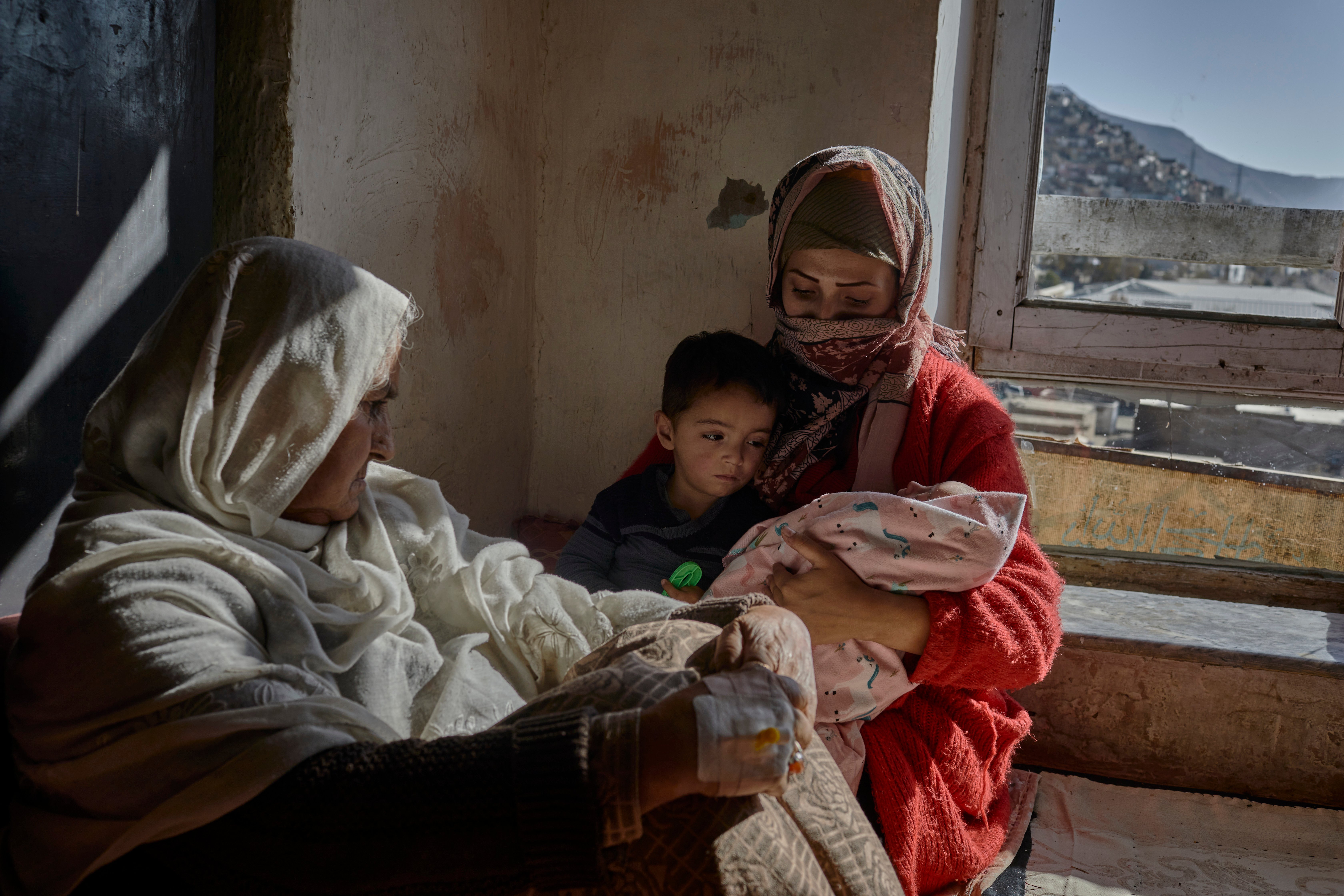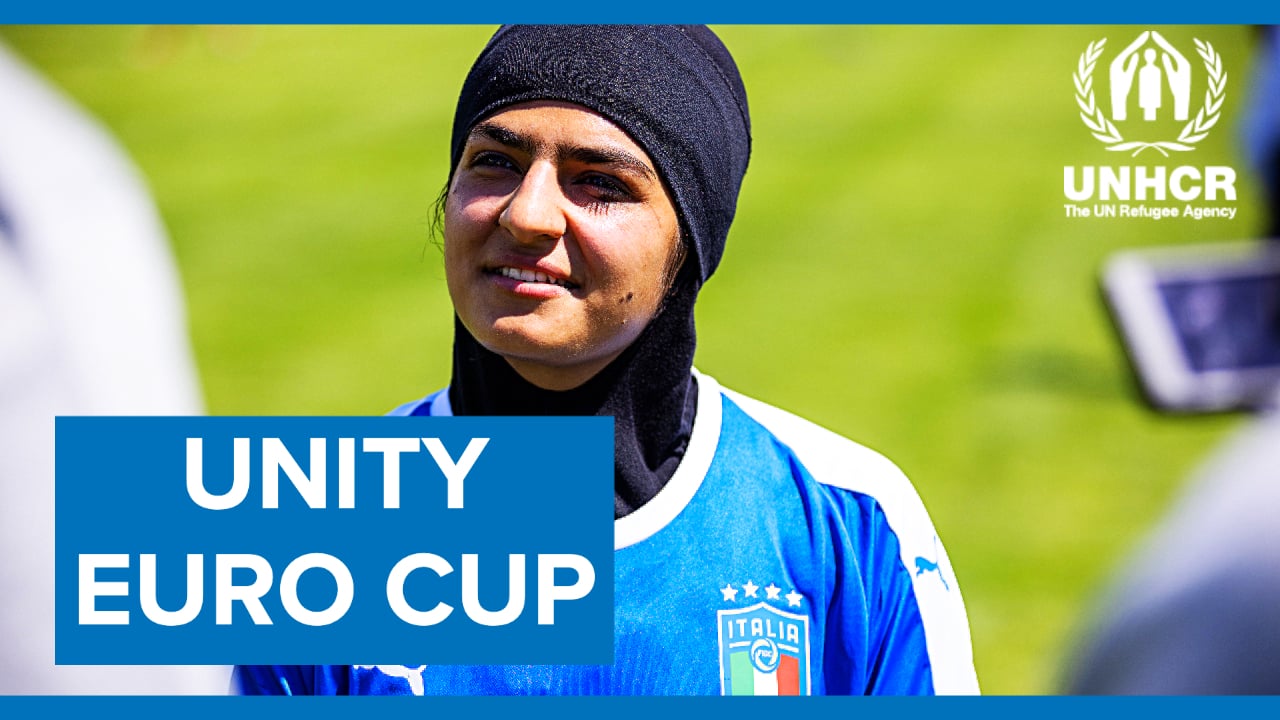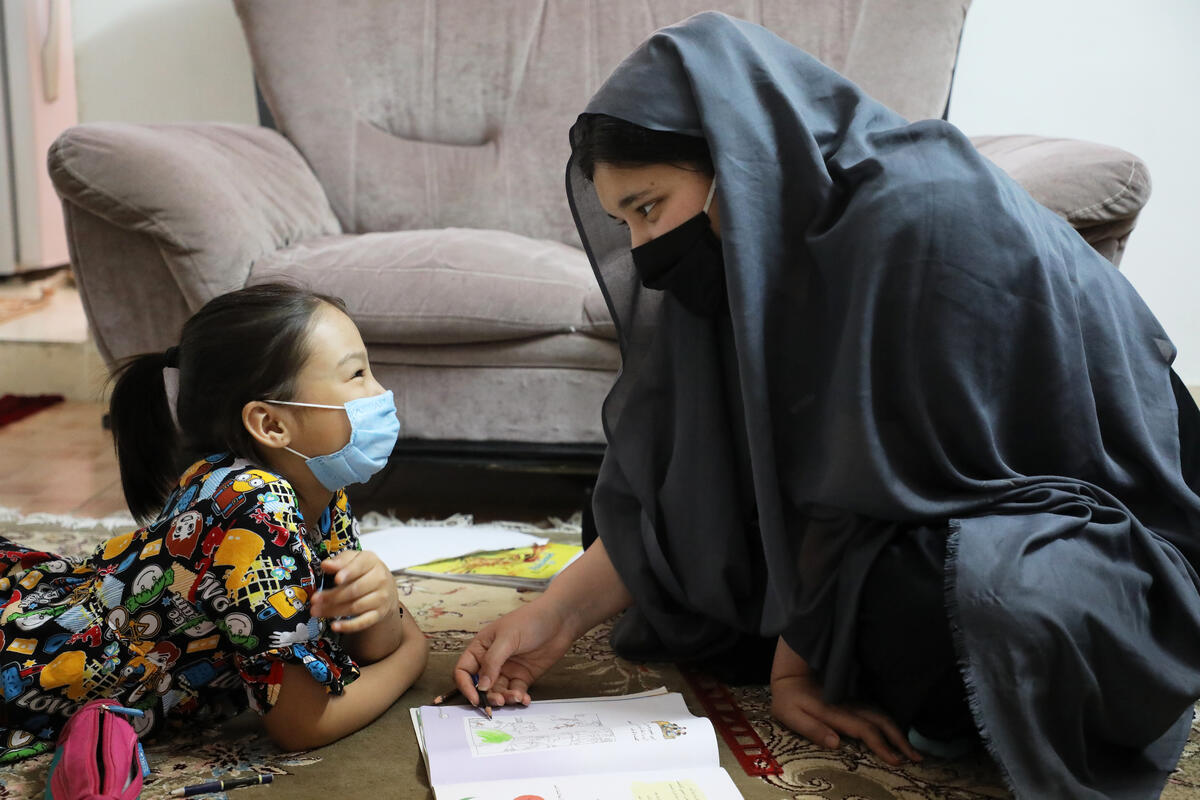New lease of life for refugee women's protection clinic in India
New lease of life for refugee women's protection clinic in India

NEW DELHI, Mar 23 (UNHCR) - UNHCR's Refugee Women's Protection Clinic in West Delhi was facing closure earlier this year because of a lack of funding, but after the Australian government offered to help finance it, the facility will now remain open until the end of the year.
Australia's Minister for Immigration and Multicultural Affairs, Senator Amanda Vanstone visited the clinic last week, the first such visit ever by an immigration minister from another country to a refugee operation in India.
Senator Vanstone spent time chatting and drinking tea with the women attending the clinic which was set up to meet the needs of hundreds of women refugees mainly from north-western Myanmar. Around 80 per cent of them are Chin, but the group includes some Kachin and Burmese as well. They have fled violence and trauma, arriving in New Delhi after a gruelling five-day voyage on buses and trains having travelled over 1,000 kilometres.
"By the time they arrive in New Delhi they have survived major trauma - some have been raped; others have lost heads of households - and then they are thrust into an urban environment totally different from the mainly rural background they have come from. As well as this, they are culturally different, and this can also cause problems," says UNHCR's top official in India, Carol Batchelor. As the refugee agency does not have access to the border region, New Delhi is the first place that UNHCR can get help to them.
From talking to these women, UNHCR has discovered the extent of the difficulties they face, especially for those without male heads of households, who are frequently exposed to sexual and gender-based violence, including domestic abuse.
"Women often go to market places late at night trying to find leftover food, so they expose themselves to threats and insecurity. They are also living in overcrowded spaces, often alongside unrelated males. Again this can create a risk," says Batchelor.
So last December UNHCR opened the Women's Protection Clinic in the area of the city where most of these women live. There is a crèche next door where women can leave their children, and the clinic itself employs two trained consultants, one with a legal background and the other with psychosocial expertise.
"We thought that we would get a place where we could meet with women and girl refugees confidentially, so we could get an idea of the full spectrum of the problems they face, and find out how we can get them better protection and find long term solutions."
Staff at the clinic say that the women using it often say it is one place that they feel "safe". UNHCR is aiming to interview all of the 650 women and girl refugees from Myanmar who now live in Delhi so as to gain a complete picture of their situation. So far they have managed to talk to about half of them.
"In the safe environment of the clinic all of these problems are spilling out - their problems with food, education, work, physical security, their hopes for the future.
The clinic has become our vehicle for better understanding the position of women and girls so we can protect them better. We can identify those at risk, we can help them find better accommodation, and get them better access to food," says Bachelor.
Apart from being a place to talk freely and seek help, the clinic has also raised the profile of the women within their own community.
"Women are saying now that the clinic is giving them a voice in the community. It's been an equaliser, not only for identifying risk factors, but empowering women also."
By Nayana Bose in New Delhi, India









